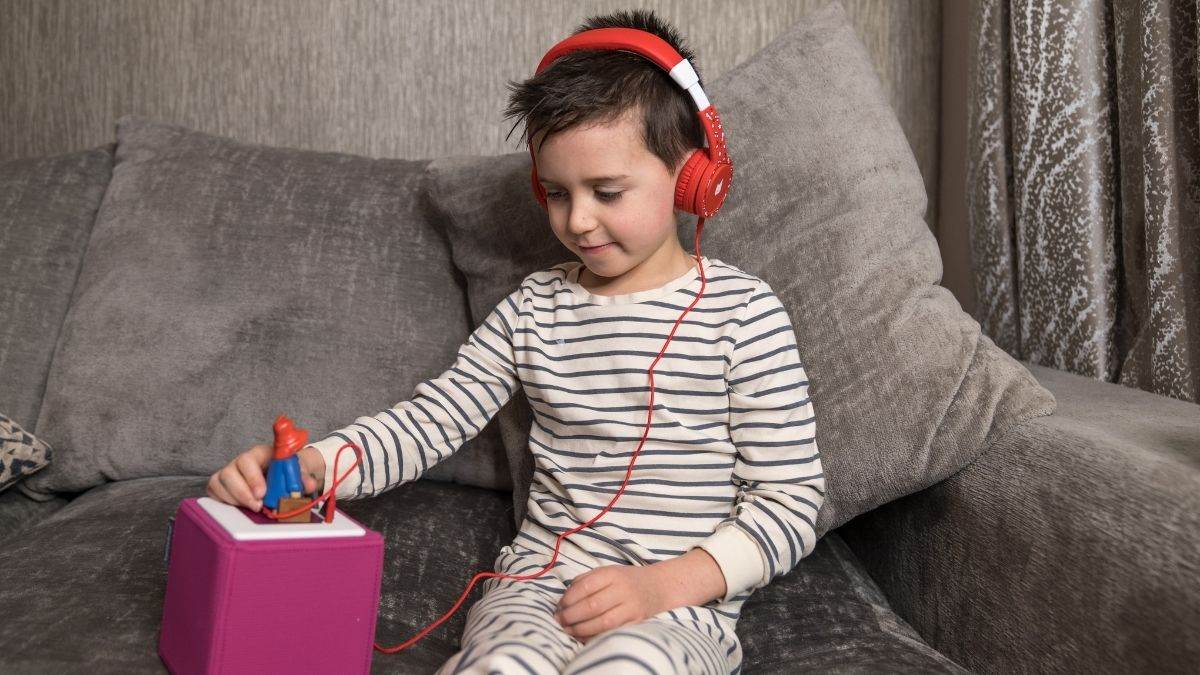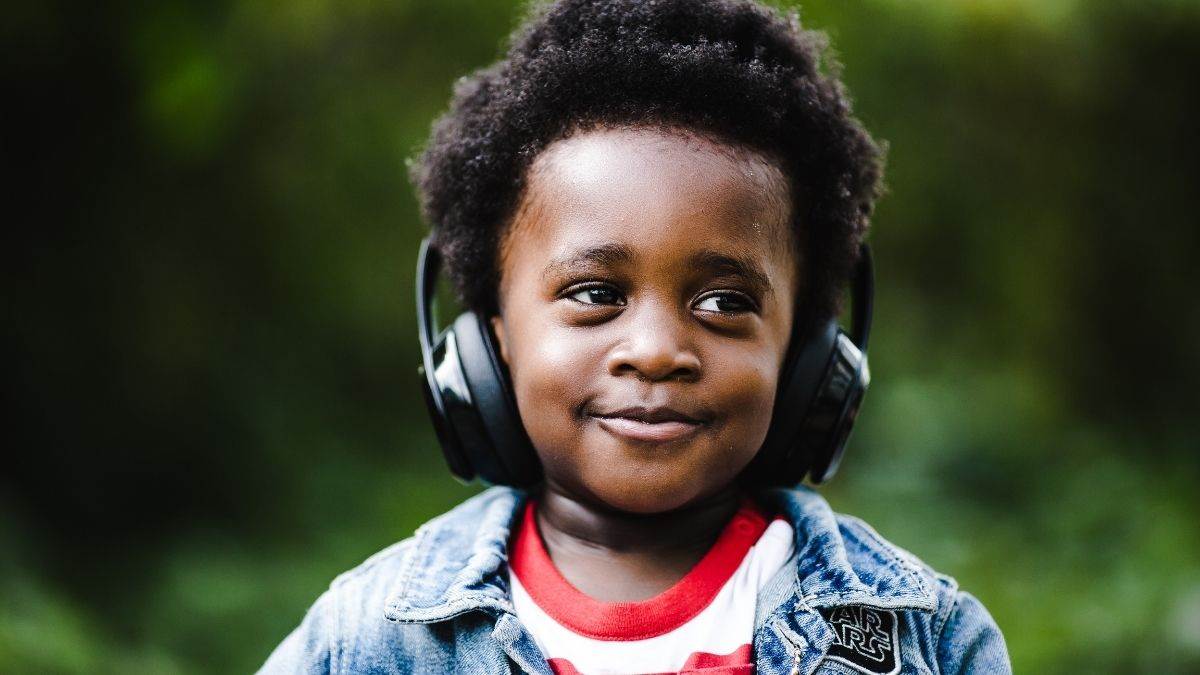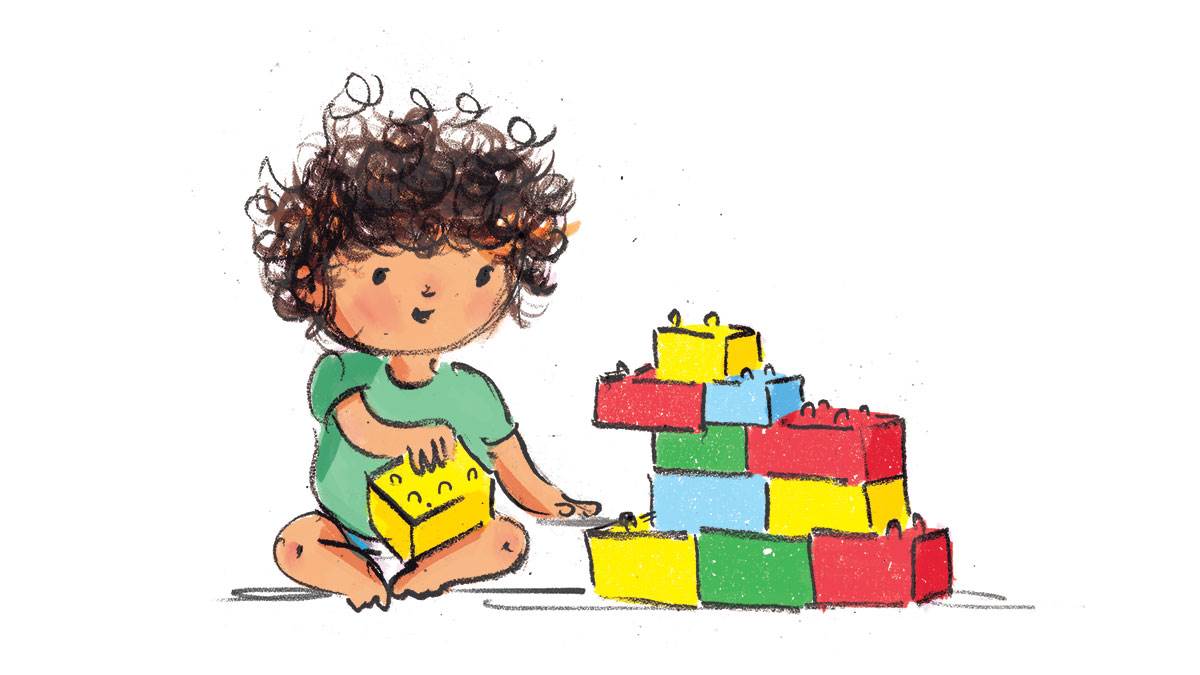How audiobooks can help children fall in love with reading
Published on: 27 January 2022
Listening and learning through storytelling can help little ones' early development before they're even able to read! Here, Tonies share how audiobooks can be a fun and engaging way to help children develop their listening and learning skills – especially when supported by family reading time, too.
 A little boy wearing headphones and using a Toniebox
A little boy wearing headphones and using a Toniebox
The power of the spoken word has been enchanting and engaging children ever since storytelling began, and now research reveals that audiobooks for kids have never been more important. Following two years of school closures and national lockdowns, our children have endured much disruption to their education and wellbeing. At the same time, advances in digital technology have provided easier access to audiobooks, at a time when they were needed most.
Audio storytelling introduces pre-readers and developing readers to the magical world of narrative long before they can read for themselves.
Listening to and sharing stories is key to improving a child’s early language and literacy development.
Research by the National Literacy Trust
Recent research by the National Literacy Trust found audiobooks to be hugely beneficial to younger children (from birth to age 8) through the development of comprehension skills and engagement with stories. Audio is proven to benefit children’s reading skills, as well as their mental wellbeing and emotional intelligence.
It’s proven that in households where children hear fewer words, their literacy levels at age 5 are lower than those who have been exposed to a higher number of words, impacting on longer-term literacy and ability. Audiobooks help solve this problem by exposing children to a wider vocabulary, that in turn, helps with pronunciation, improved comprehension, and increased exposure to different cultures.
Audiobooks also teach children models of fluent reading. Hearing stories read with accuracy, either from an audiobook or being read to by a caregiver, at an appropriate speed and with proper expression has a positive impact on a child’s own reading fluency.
 Little boy wearing headphones
Little boy wearing headphones
Audiobooks help foster a long-term interest in reading
The powerful positive impact of reading books together as a family has been widely documented. Audiobooks can play a strong part in supporting this. Research shows that half of young people say listening to audiobooks has increased their interest in reading, and two in five say listening to audiobooks has made them more interested in writing. Interestingly, findings also revealed that listening to an audiobook requires the same cognitive skills as reading in print, therefore supporting a child’s development of skills that children need to read.
Audio storytelling engages the reluctant reader
Audiobooks are a brilliant tool for engaging reluctant, struggling and developing readers, providing a bridge for those who find reading and literacy a challenge.
Where some children may find there to be a barrier in reading material, audiobooks can be a brilliant tool for engaging reluctant, struggling and developing readers, providing a bridge for those who find reading and literacy a challenge.
Audio storytime breaks down the barriers of the written word, giving children the freedom to embrace a world of exciting adventure and a variety of stories above their own reading abilities, with absolutely no stigma attached. This is incredibly beneficial for struggling readers who need extra encouragement
Audio also provides easy access to stories for kids whose parents’ own literacy skills or confidence mean they are less comfortable reading to their children.
Audiobooks encourage independent, active play
The world of reading sparks imagination, fuels curiosity, and encourages independent, active play. Play is important for both escapism and development, while fostering concentration and self-expression, and supporting physical, emotional, cognitive and social development. With an audio speaker, children can dance, sing, play and listen to music or an engaging story any time they choose.
“Immersive play also helps to build self-worth by giving a child a sense of their own abilities, helping them to feel good about themselves. Importantly, children should be allowed to choose how they play, following their own instincts, imagination and interests.”
- Miss Grant, reception year school teacher, south London.
 Illustration: Kate Alizadeh
Illustration: Kate Alizadeh
The benefits of family story time
Audiobooks make it easy to access to stories as a family, at home or on the go. Family life can be hectic, but with an audiobook you can listen to stories ‘hands-free’. This gives families lots of opportunity to tune in while engaging in other activities, whether it’s mealtime, bath time or in the car on the school-run, where snuggling up together with a book isn’t immediately available.
Sharing stories builds emotional connection, and listening to or reading a story with your child is a great excuse to spend quality time with them, creating memories they’ll treasure forever.
Try out some of our interactive listen-along nursery rhymes
About Tonies
By unlocking the world of audio, children will develop a passion for reading that will last a lifetime. There’s no doubt that the audiobooks they enjoyed as young children will be the stories they treasure on their bookshelves when they’re older.
Tonies offers a screen-free audio system for little listeners for endless interactive storytelling and playing fun. Find out more here.
Topics: Early learning, Libraries, Features, Life-changing Libraries





